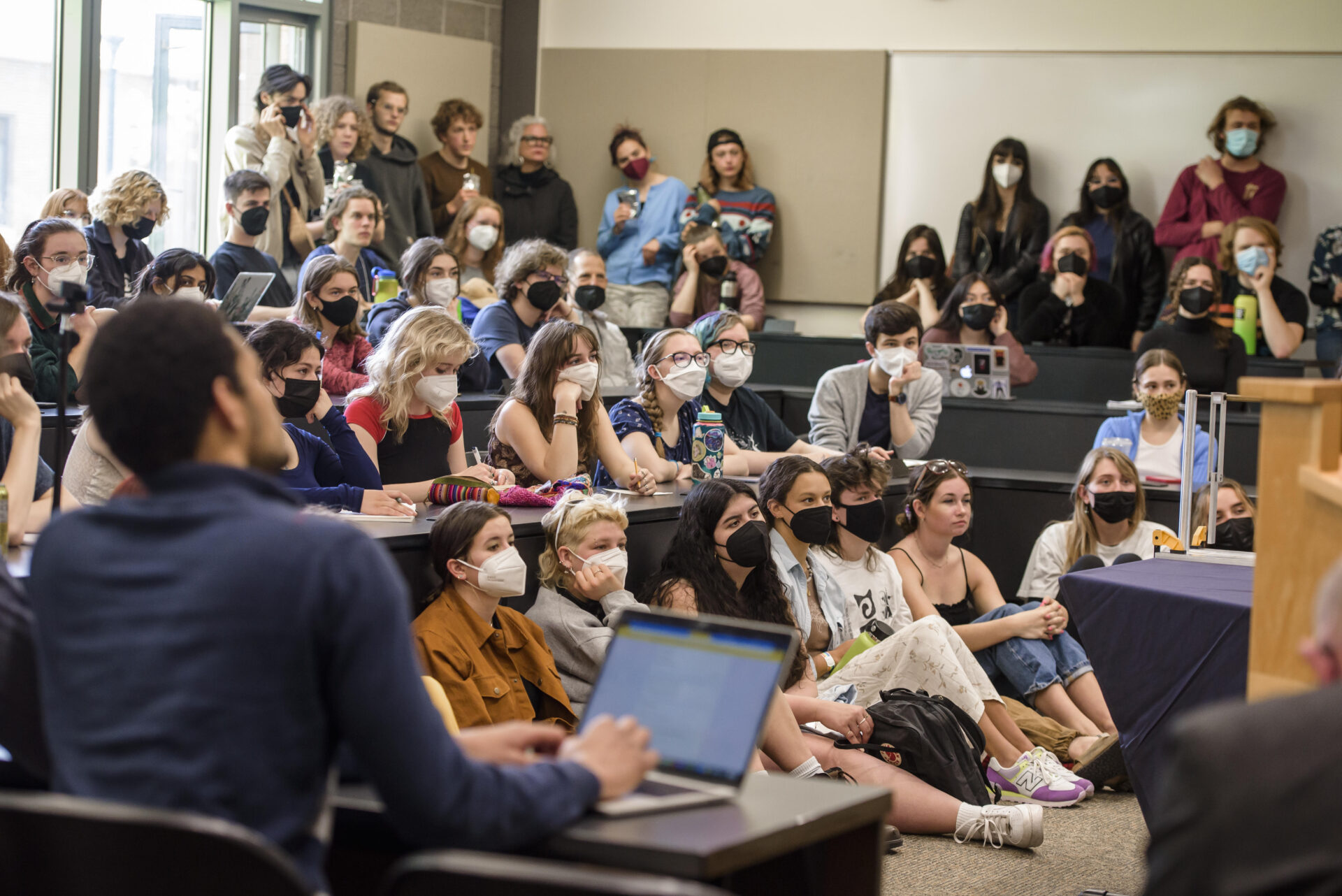
Last week, Lewis & Clark held its Festival of Scholars and Artists (FOSA). FOSA is a beloved annual event where students come together to show off all of their hard work, ranging from theses to art portfolios to science projects. Topics can range from scientific research to theater history to film analysis.
If you are interested in anything, it is almost guaranteed that there is a related FOSA lecture. Each time slot offers various lectures and panels to choose from, allowing for a diverse and engaging lineup of student creators.
All of the lectures at FOSA are researched, planned and presented by students. Students who present must first be nominated by a professor and then may decide whether or not to accept the nomination and present their works.
Sophia Kingsbury ’24, an IA major, based her FOSA lecture, “Staging a Nation: Indian Classical Dance as a Form of Soft Power,” on research she conducted while studying abroad in India.
“In IA you talk about hard power, of getting a country to do something, and soft power is more about how to do that with the appeal of a country, through culture and food. My question was ‘How is dance really well-positioned?’ I did a lot of different interviews, went to a lot of events, and came away thinking that dance is a great tool in diplomacy, and a lot of money in India has been spent on it,” Kingsbury said.
Kingsbury came across the topic at the American Institute of Indian Studies.
“We were assigned to a collection where they just received this huge cabinet of dance ephemera, paper goods, like tickets, bills, catalogs, all temporary goods,” Kingsbury said. “I started going through it and noticed that the Indian government funded a lot of dance programs abroad. My belief is that they’re using the arts to create this image of India.”
Another presenter, Ila Trevino ’25, was part of a round table discussion called “LGBTQ, Disability, & Family Structures in Asylum.” Trevino is very passionate about the work she is doing on this topic.
“It’s not only research to fulfill a credit, but it’s research that could actually help someone’s life. If you’re doing immigration or asylum cases, having a report like the one that we’re doing could help adjudicators make informed decisions,” said Trevino.
The group divided up their work into specific countries and issues. Trevino’s focus was on how the Mexican government treats citizens with disabilities.
“I did research pertaining to the hardships of people with disabilities living in Mexico, whether that’s healthcare, education, employment, legal systems,” Trevino said. “The framework of the Mexican government and the social climate in Mexico is dangerous for persons of disability living there.”
Zory Smith-Miodownik ’25 did her research in her Medicine, Healing and Culture class and became increasingly passionate about her final project as she worked. The final project itself was a 30 page ethnography on an individual who either had a chronic illness or was a caregiver to a person with a chronic illness. In the class, there was a focus on “expanding the definition of a chronic illness.”
Smith-Miodownik wrote her paper about her mother’s grief when they lost Smith-Miodownik’s grandfather.
“(The paper) felt very meaningful and like it existed outside the realms of just academics. It felt like a way to be more in relation to my mom and grandfather,” said Smith-Miodownik. “It was a project that I spent a lot of time on and want to share with people.”
She focused on presenting the main points from her original essay concerning perceptions of healing.
“(The main points are) these romanticized and idealized notions of healing that I think capitalism perpetuates. I think true healing is a lot more ragged and grueling work than is often depicted or strived towards,” she said. “After (my mom’s) dad died, she entered an intense state of disassociation and I know she feels a lot of internalized guilt about … her inability to be there in capacity to other people. Things like that are often denoted as bad or unhealthy rather than sometimes necessary, and the only means of survival.”
FOSA is always a beautiful culmination of diverse and compelling student research, and this year was no different. Look out next year for the festival, and be sure to make time in the day to sit in on a presentation, appreciate students’ hard work and ask some questions.
Subscribe to the Mossy Log Newsletter
Stay up to date with the goings-on at Lewis & Clark! Get the top stories or your favorite section delivered to your inbox whenever we release a new issue.

Leave a Reply